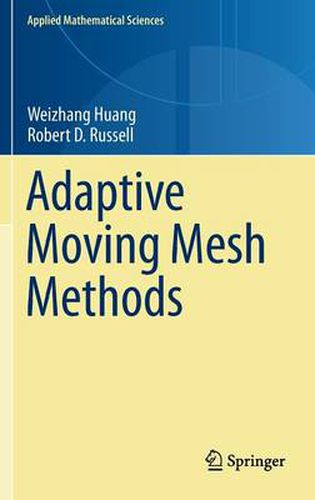Readings Newsletter
Become a Readings Member to make your shopping experience even easier.
Sign in or sign up for free!
You’re not far away from qualifying for FREE standard shipping within Australia
You’ve qualified for FREE standard shipping within Australia
The cart is loading…






This title is printed to order. This book may have been self-published. If so, we cannot guarantee the quality of the content. In the main most books will have gone through the editing process however some may not. We therefore suggest that you be aware of this before ordering this book. If in doubt check either the author or publisher’s details as we are unable to accept any returns unless they are faulty. Please contact us if you have any questions.
This book is about adaptive mesh generation and moving mesh methods for the numerical solution of time-dependent partial differential equations. It presents a general framework and theory for adaptive mesh generation and gives a comprehensive treatment of moving mesh methods and their basic components, along with their application for a number of nontrivial physical problems. Many explicit examples with computed figures illustrate the various methods and the effects of parameter choices for those methods. Graduate students, researchers and practitioners working in this area will benefit from this book.
$9.00 standard shipping within Australia
FREE standard shipping within Australia for orders over $100.00
Express & International shipping calculated at checkout
Stock availability can be subject to change without notice. We recommend calling the shop or contacting our online team to check availability of low stock items. Please see our Shopping Online page for more details.
This title is printed to order. This book may have been self-published. If so, we cannot guarantee the quality of the content. In the main most books will have gone through the editing process however some may not. We therefore suggest that you be aware of this before ordering this book. If in doubt check either the author or publisher’s details as we are unable to accept any returns unless they are faulty. Please contact us if you have any questions.
This book is about adaptive mesh generation and moving mesh methods for the numerical solution of time-dependent partial differential equations. It presents a general framework and theory for adaptive mesh generation and gives a comprehensive treatment of moving mesh methods and their basic components, along with their application for a number of nontrivial physical problems. Many explicit examples with computed figures illustrate the various methods and the effects of parameter choices for those methods. Graduate students, researchers and practitioners working in this area will benefit from this book.